Are you planning to embark on a sponsored research project and need a solid agreement in place? Crafting a research agreement can be daunting, but with the right template, it can be much easier to navigate the intricacies of funding and expectations. These agreements not only define the roles and responsibilities of all parties involved but also ensure that intellectual property rights are respected and financial terms are clear. Curious about how to get started with your own sponsored research agreement? Keep reading for expert tips and a handy template!

Parties Involved
A sponsored research agreement is a crucial document that outlines the relationship between the funding organization and the research institution. Typically, the parties involved include the sponsoring organization (often a corporation or government agency), which provides financial support and resources, and the research institution (such as a university), where the research activities will take place. For example, a well-known pharmaceutical company like Pfizer may engage in a sponsored research agreement with an academic institution like Harvard University. The agreement details the responsibilities of each party, rights to intellectual property, publication provisions, and confidentiality clauses. Additional considerations may involve the duration of the agreement, funding amounts, and the specific objectives of the research project.
Scope of Research
The scope of research for the sponsored project entitled "Innovative Sustainable Energy Solutions" at the University of Innovation focuses on developing cutting-edge technologies to harness renewable energy sources, such as solar, wind, and geothermal. This multifaceted initiative encompasses a comprehensive analysis of energy efficiency metrics, carbon footprint reduction strategies, and smart grid integration methodologies. The research team, consisting of experts from interdisciplinary fields including electrical engineering, environmental science, and data analytics, will conduct field studies at pilot facilities in California and Texas, where diverse climatic conditions and resource availability will be assessed. Expected outcomes include the creation of prototypes that optimize energy capture and storage systems and the publication of findings in peer-reviewed journals within 24 months, contributing to the broader discourse on climate change mitigation.
Funding and Payment Terms
Sponsored research agreements outline the partnership between organizations, such as universities and private entities, to collaboratively conduct research projects. Funding and payment terms, crucial elements of these agreements, delineate the financial responsibilities of the sponsoring organization and expectations from the receiving institution. Typically, the agreement specifies total funding amount, payment schedule, and milestones for disbursement. For instance, a $500,000 grant distributed in quarterly installments contingent upon progress reports may be established. Additionally, provisions addressing budgeting guidelines, permissible expenses, and financial audits enhance transparency. These agreements also outline conditions for unspent funds at project completion, ensuring both parties maintain clarity throughout the research endeavor.
Confidentiality and Intellectual Property
The Sponsored Research Agreement (SRA) outlines the collaborative framework between the research institution and the sponsoring entity, focusing on confidentiality and intellectual property rights. Confidentiality clauses establish the requirement for both parties to protect proprietary information (including research methodologies, unpublished data, and technical specifications) shared during the study, ensuring adherence to legal standards such as the Uniform Trade Secrets Act. Intellectual property provisions delineate the ownership rights of any inventions, patents, or discoveries resulting from the research, specifying entitlements for the sponsoring entity to exclusive licensing if financial support exceeds a certain threshold, often marked at $50,000 in funding. The agreement typically stipulates a duration of confidentiality, often set at five years post-project completion, safeguarding sensitive information from public disclosure or competitive exploitation.
Termination and Amendment Conditions
The termination and amendment conditions of sponsored research agreements outline specific criteria and procedures for discontinuing or modifying the research collaboration. Termination may occur due to various reasons such as non-compliance with the agreement terms, loss of funding, or failure to meet project milestones. Both parties can initiate termination, typically requiring a written notice (often 30 days in advance). Amendments to the agreement require mutual consent, documented through a formal amendment process, ensuring that both parties acknowledge and agree to the changes. Key elements like budget adjustments, project timelines, and intellectual property rights may be addressed in such amendments, ensuring clarity and mutual understanding between the sponsoring organization and the research institution involved.
Letter Template For Sponsored Research Agreement Samples
Letter template of modification for existing sponsored research agreement
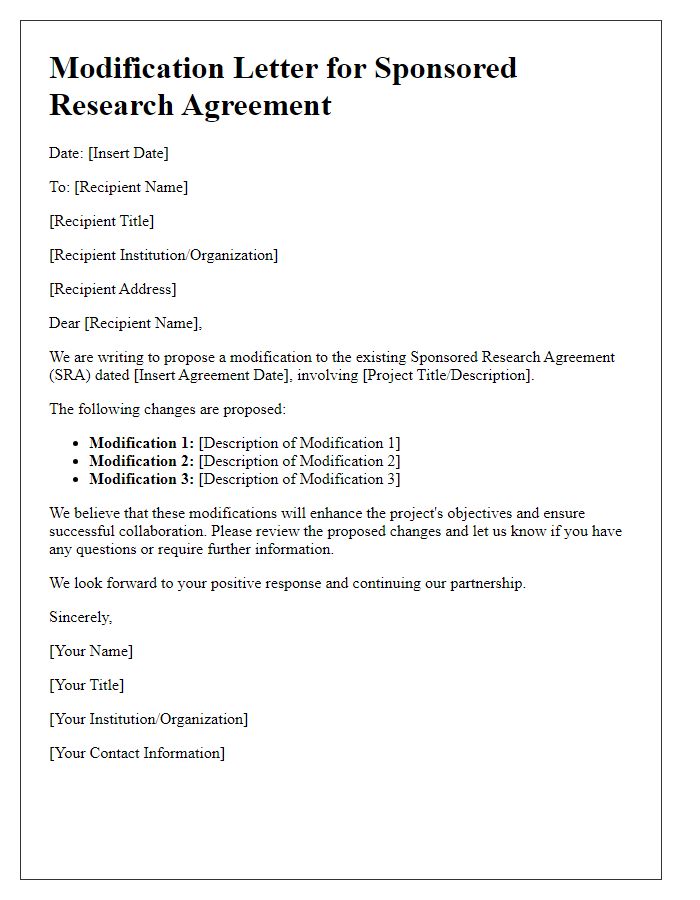
Letter template of acknowledgment for sponsored research agreement receipt
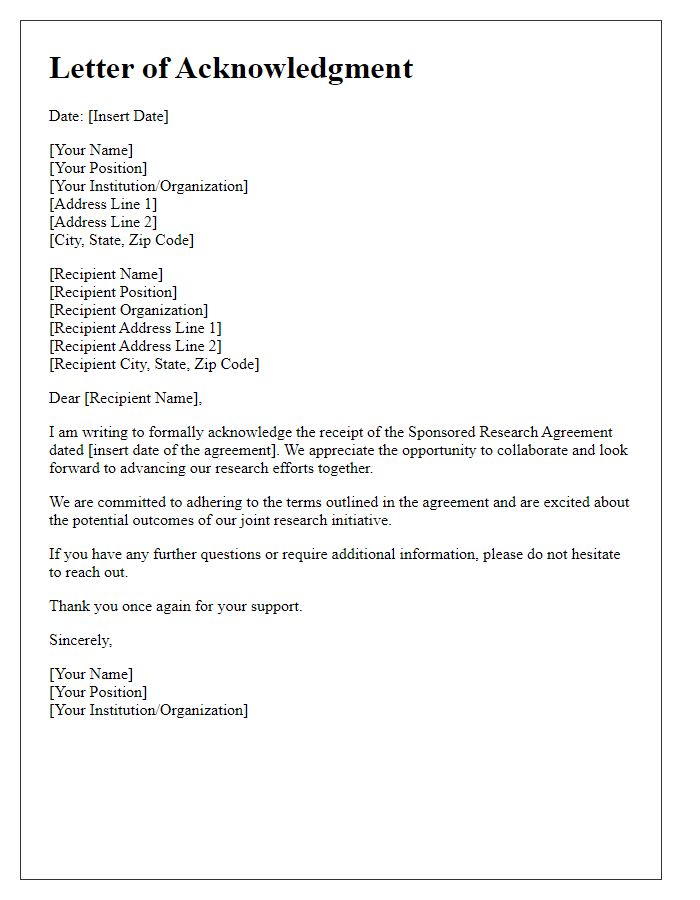
Letter template of confirmation of sponsored research agreement execution
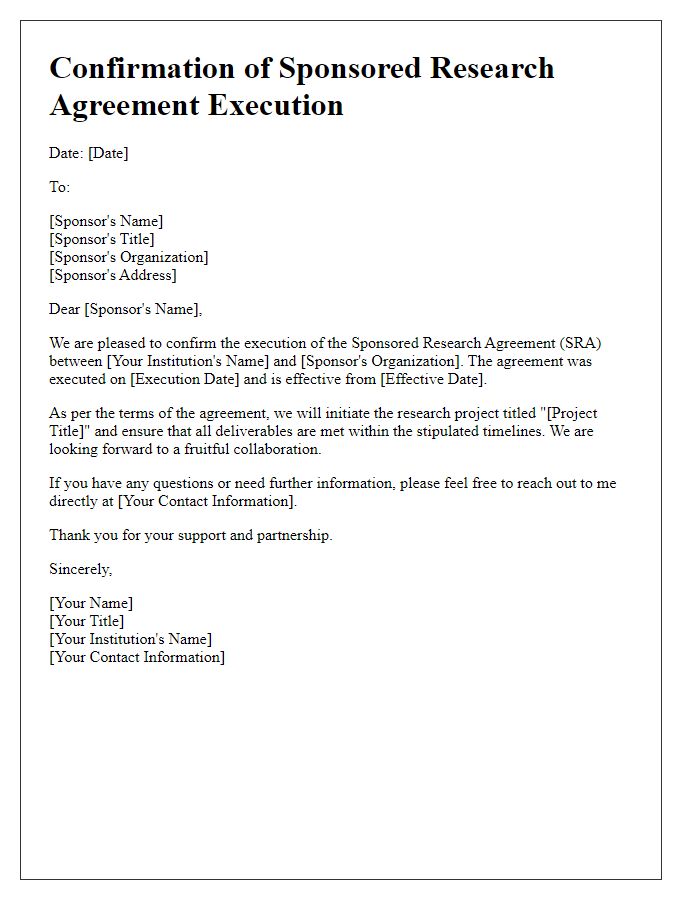
Letter template of inquiry regarding sponsored research agreement status
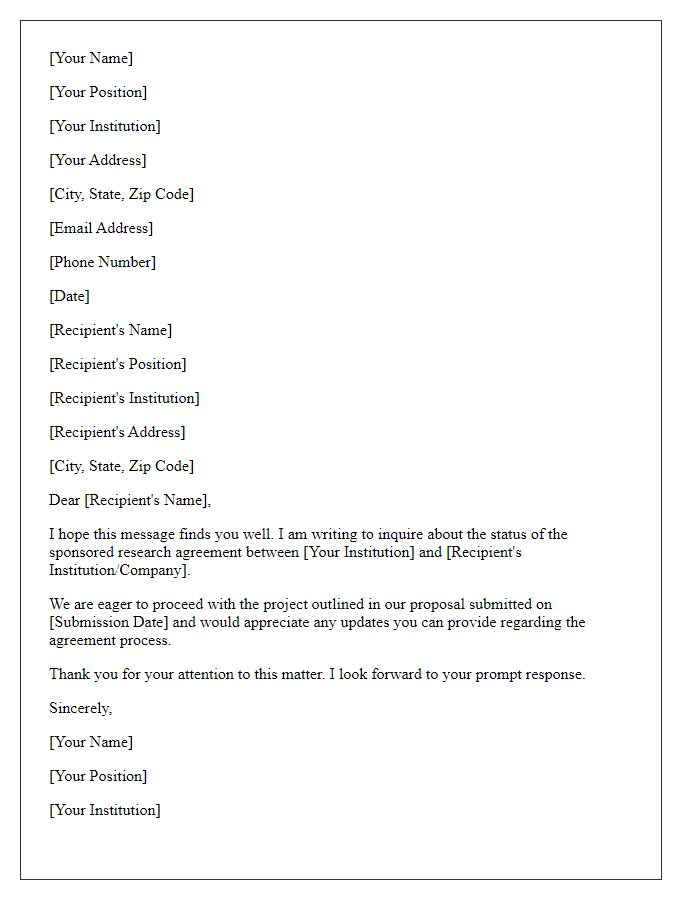

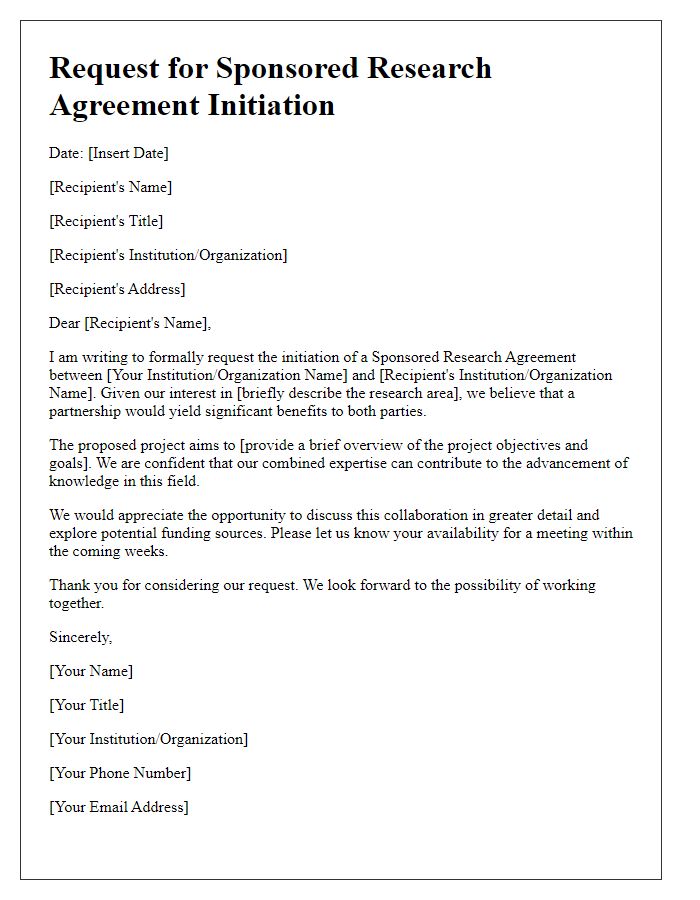
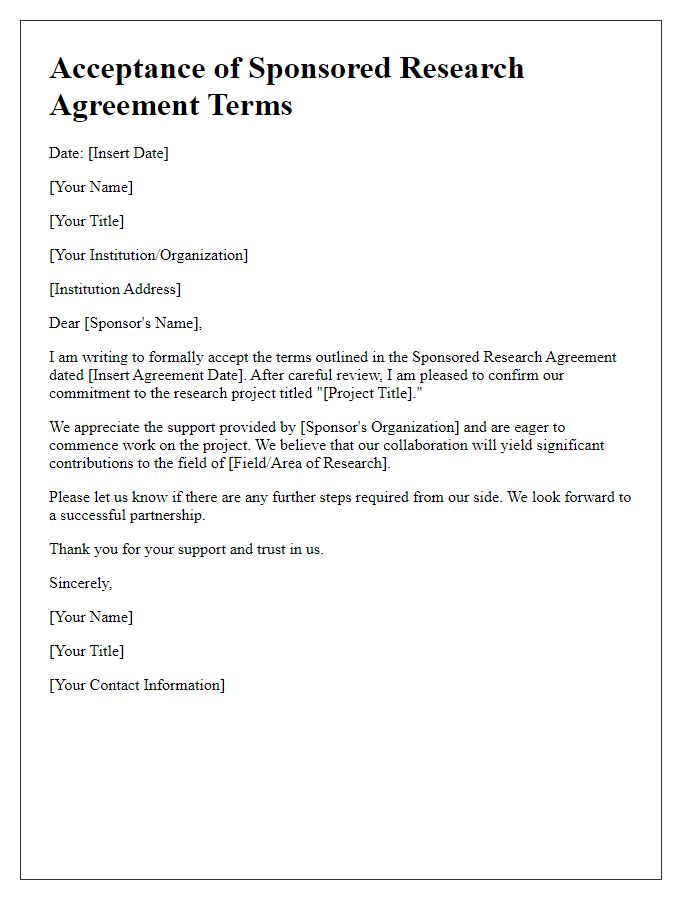
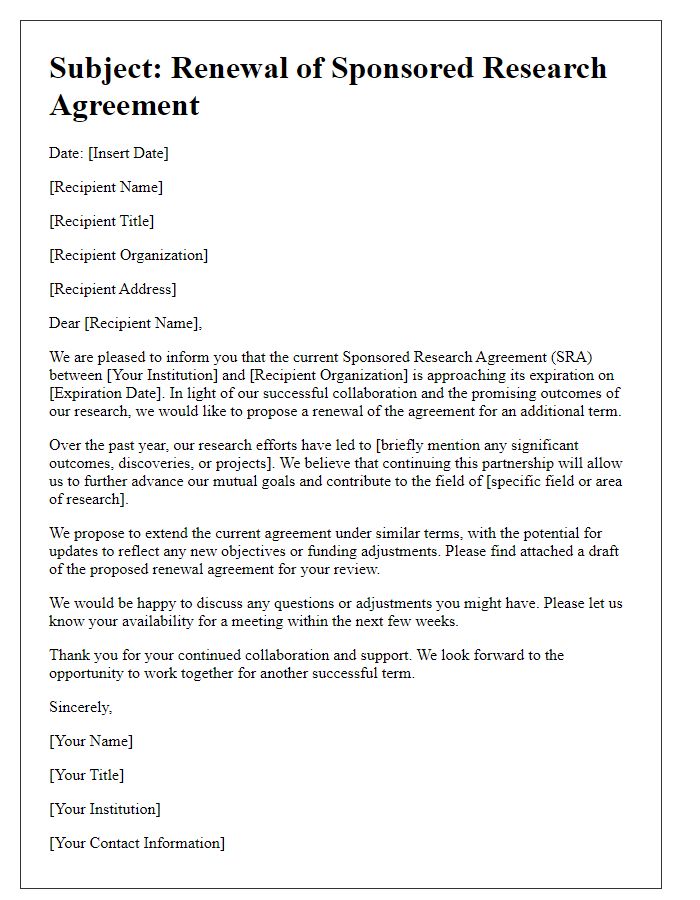
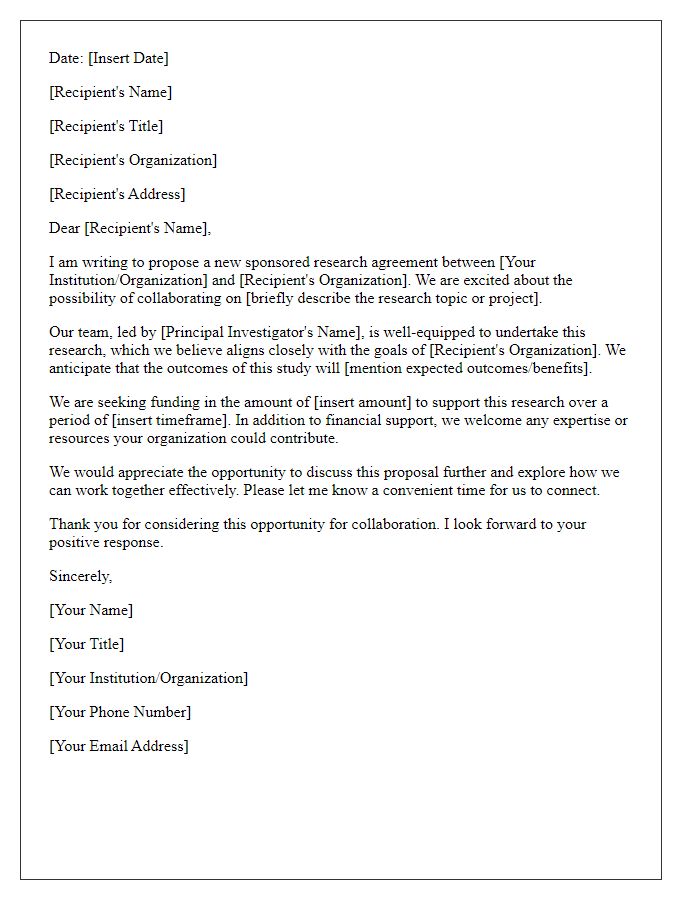
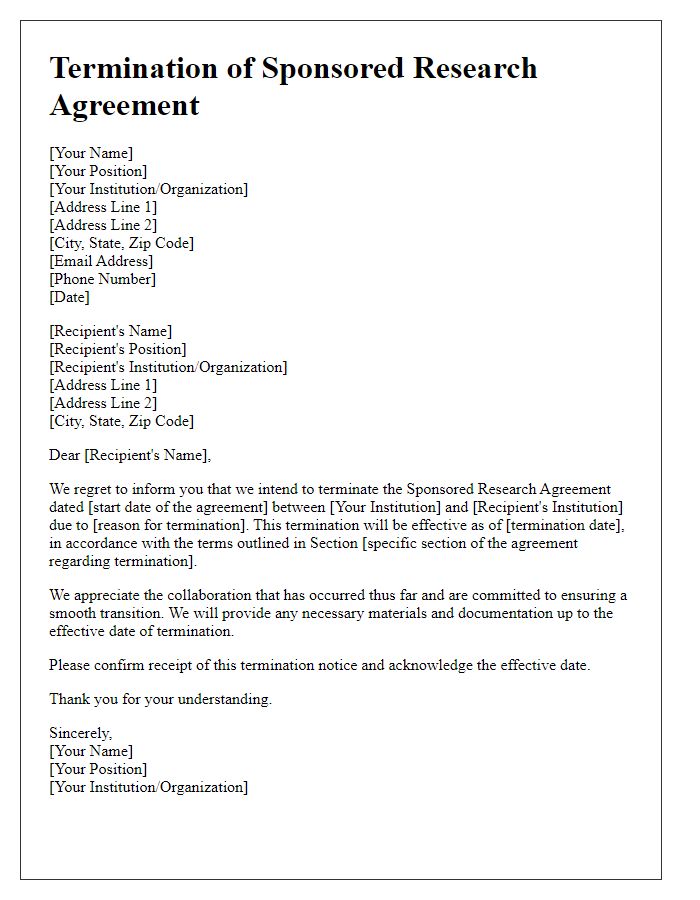
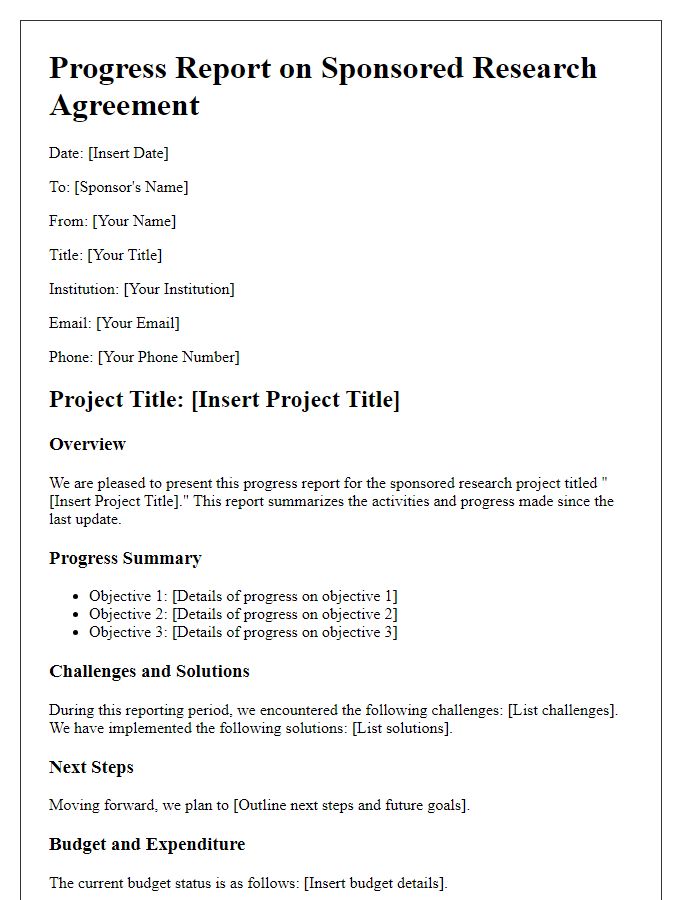


Comments